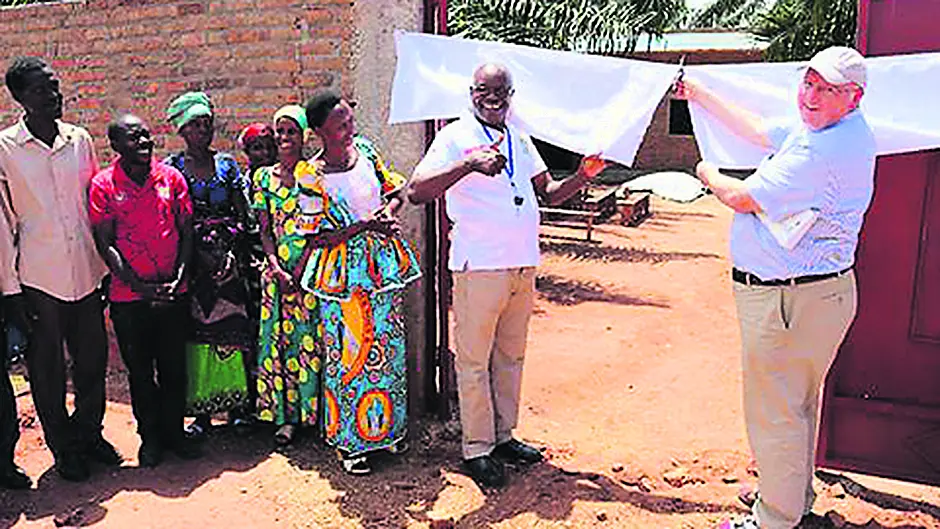AN Anglican priest based in Carrigaline has recently returned from one of Africa’s poorest countries where he visited a project supported by a diocese that is improving the lives of people living in poverty.
Rev Tony Murphy, who ministers in Moviddy Union, which includes Kilmartin, Crookstown, Macroom and Kilmurry, visited a project in the east African country of Burundi where he saw first-hand the transformative impact it’s having, increasing crop yields and boosting income.
Donations made by the Diocese of Cork, Cloyne and Ross support three farming co-operatives established by Christian Aid’s local partner, the Anglican Church of Burundi. Local farmers, most of whom are women, receive training in good farming practices and have access to a harvest storage facility as well as a small maize processing plant.
The storage room is a dry, safe place for farmers to store their maize harvests for up to two years, using food-grade sacks designed for the purpose, meaning that they don’t have to sell immediately and can instead wait until prices are higher.
The processing plant allows the farmers to ‘add value’ to their produce, by removing the husks from the maize grains and grinding the kernels to make flour. The husks can be sold to make animal feed and the flour is worth up to five times more than the equivalent weight of maize grains.
The Diocese of Cork, Cloyne and Ross has been supporting Christian Aid’s project in Burundi since 2017, via the Church of Ireland Bishops’ Appeal. In October, Rev Murphy travelled with Christian Aid as part of a five-strong delegation to see for himself how the support of his diocese is enabling farmers in Burundi to move from subsistence farming, where they grow food to survive, to a business model where they grow food for sale, in order to thrive.
One member of the co-operative, Esperance Kigongwe (44), a maize farmer and mother-of-eight, explained the difference the co-operative had made.
‘Before, I used to plant without any order. Now I know that I need to make lines and respect the distance between planting holes. My harvest has increased. Before we had a storage room, our harvest would spoil. Now I get high quality maize flour from the processing plant. With the extra money, I have bought goats and also land for myself. I can pay for school materials for my children,’ he said.
Rev Murphy said he was shocked by the reality of poverty in a country where the vast majority of people depend on subsistence crops. ‘But I was also struck by the spirit, resilience and good humour of the people. Christian Aid, working with local partners, is helping people directly at grassroots level, turning maize into flour to generate an income above subsistence level. The money from the diocese is having a direct impact on improving the situation.’







